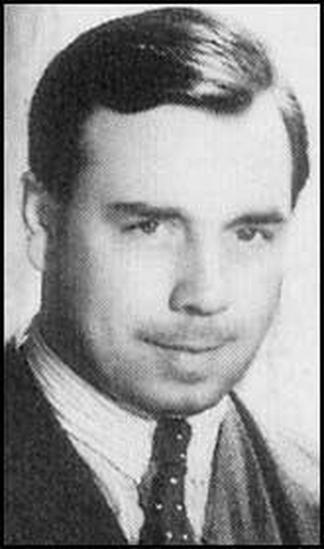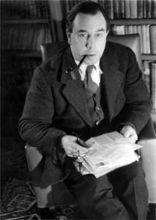Priestley's first major success came with a novel,The Good Companions (1929),which earned him the James Tait Black Memorial Prize for fiction and made him a national figure. His next novel,Angel Pavement (1930) further established him as a successful novelist. However,some critics were less than complimentary about his work,and Priestley began legal action against Graham Greene for what he took to be a defamatory portrait of him in the novel Stamboul Train (1932). In 1934 he published the travelogue English Journey,which is an account of what he saw and heard while travelling through the country in the autumn of the previous year.
He moved into a new genre and became equally well known as a dramatist. Dangerous Corner was the first of a series of plays that enthralled West End theatre audiences. His best-known play is An Inspector Calls (1945),later made into a film starring Alastair Sim released in 1954. His plays are more varied in tone than the novels,several being influenced by J. W. Dunne's theory of time,which plays a part in the plots of Dangerous Corner (1932) and Time and the Conways (1937).
Many of his works have a socialist aspect. For example,An Inspector Calls,as well as being a "Time Play",contains many references to socialism — the inspector was arguably an alter ego through which Priestley could express his views.
During World War Ⅱ,he was a regular broadcaster on the BBC. The Postscript,broadcast on Sunday night through 1940 and again in 1941,drew peak audiences of 16 million; only Churchill was more popular with listeners. But his talks were cancelled. It was thought that this was the effect of complaints from Churchill that they were too left-wing; however,Priestley's son has recently revealed in a talk on the latest book being published about his father's life that it was in fact Churchill's Cabinet that brought about the cancellation by supplying negative reports on the broadcasts to Churchill. Priestley chaired the 1941 Committee,and in 1942 he was a co-founder of the socialist Common Wealth Party. The political content of his broadcasts and his hopes of a new and different England after the war influenced the politics of the period and helped the Labour Party gain its landslide victory in the 1945 general election. Priestley himself,however,was distrustful of the state and dogma.
Priestley's name was on Orwell's list,a list of people which George Orwell prepared in March 1949 for the Information Research Department,a propaganda unit set up at the Foreign Office by the Labour government. Orwell considered these people to have pro-communist leanings and therefore to be inappropriate to write for the IRD. He was a founding member of the Campaign for Nuclear Disarmament in 1958.
Although Priestley never wrote a formal book of memoirs,his literary reminiscences,Margin Released (1962),provide valuable insights into his work. The section dealing with his job as a teenage clerk in a Bradford wool-sorter's office manages to weave fine literature from an outwardly unpromising subject – a characteristic of many of his novels. His interest in the problem of time led him to publish an extended essay in 1964 under the title of Man and Time (Aldus published this as a companion to Carl Jung's Man and His Symbols). In this book he explored in depth various theories and beliefs about time as well as his own research and unique conclusions,including an analysis of the phenomenon of precognitive dreaming,based in part on a broad sampling of experiences gathered from the British public,who responded enthusiastically to a televised appeal he made while being interviewed in 1963 on the BBC programme,Monitor. Priestley managed the treatment of this potentially esoteric subject matter with warmth and competence. Priestley was one of the interviewees for the documentary series The World at War (1973),in the episode "Alone: May 1940 – May 1941". He declined lesser honours before accepting the Order of Merit in 1977.
The University of Bradford awarded Priestley the title of honorary Doctor of Letters in 1970,and he was awarded the Freedom of the City of Bradford in 1973. His connections with the city were also marked by the naming of the J. B. Priestley Library at the University of Bradford,which he officially opened in 1975, and by the larger-than-life statue of him,commissioned by the Bradford City Council after his death,which now stands in front of the National Media Museum. A special collector's edition of Bright Day was re-issued by Great Northern Books in 2006,celebrating the 60th anniversary of the publication of this novel.







